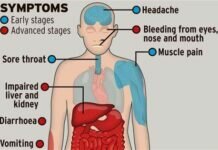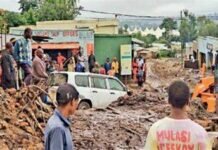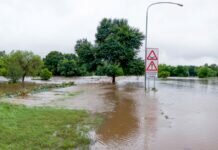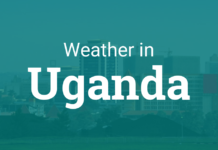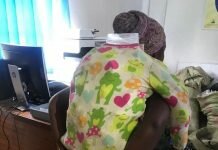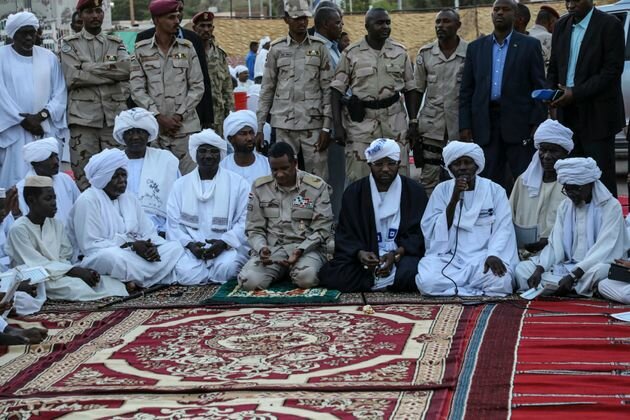Sounds of sporadic shelling could be heard into the night Friday in Sudan’s capital, despite renewed cease-fire declarations from Sudan’s military and a rival paramilitary force locked in heavy clashes for the past seven days.
Neither side had immediate comment on an offer from Kenyan President William Ruto to mediate the conflict, which has killed hundreds and prompted thousands of Khartoum residents to flee the city.
The UN Humanitarian Coordinator in Sudan issued a strong statement on Friday calling on both sides in the military power struggle to “implement humanitarian pauses” allowing civilians and aid workers to access essential supplies.
The fighting between troops from the national army and a powerful rival militia known as the Rapid Support Forces (RSF) erupted six days ago, and has had a devastating impact on civilian life and the major on-going humanitarian aid operation across Sudan.
Latest news reports indicate that bombing, shelling and gunfire have continued unabated, especially in the capital Khartoum, and the UN migration agency, IOM, reported on Friday that one of its staff members had become a victim of the violence.
UN migration agency staffer killed
At least 413 people have been killed in the power struggle between the two previously allied leaders of the ruling military junta, Burhan and Dagalo, according to the World Health Organization.
The group said that thousands more have been injured in the fighting, and that as many as 20,000 people have fled Sudan to neighboring Chad.
At least five aid workers were among the dead, including three from the World Food Program, which suspended operations in Sudan. On Friday, an aid worker with the International Organization for Migration was killed in the city of El Obeid, according to Reuters. The worker was driving his family to safety when his vehicle was caught in the crossfire.
Latest death update
“It is with a heavy heart that I confirm the death of a dedicated IOM Sudan staff member this morning after the vehicle he was traveling in with his family south of El Obeid was caught in a crossfire between two warring parties”, said Director General, António Vitorino.
He said the male staffer leaves behind a wife and newborn child, “and our team in Sudan in mourning.”
“The safety and security of all IOM staff is my number one priority. We continue to work with our UN partners to update our security response”, he assured.
Three workers from the World Food Programme (WFP) lost their lives in North Darfur as the military showdown first began on Saturday.
Mr. Vitorino said the latest outbreak of violence has forced IOM to suspend its humanitarian operations in Sudan.
IOM has operated in Sudan since 2000, responding to the complex humanitarian needs in the country where an estimated 3.7 million people are internally displaced”, the IOM chief continued.
Some 15.8 million people in Sudan, one-third of the population, were in need of humanitarian assistance before this week’s fighting began.
Food, water, healthcare crisis
Mr. Dieng said that even short agreed pauses in the intense fighting between the rival factions, which have so far ignored all calls for a ceasefire, would allow civilians access to essential food and water.
“Access to health facilities is also paramount. Many hospitals have had to close. And in those that are functioning, widespread blackouts and lack of electricity place patients at high risk.”
Several hospitals have simply run out of blood and other lifesaving supplies.
“Assaults on hospitals, humanitarian staff and facilities must stop”, said the Humanitarian Coordinator.
According to the latest statement from UN aid coordination office OCHA, there have been reports of military strikes against health facilities, hijacking of ambulances with patients and paramedics still on board, looting of health facilities, and military forces occupying health facilities.
Severe shortages grow
In hospitals, there are severe shortages of specialized medical staff, oxygen supplies and blood bags, according to the World Health Organization, WHO, while lack of electricity and blackouts place hospital patients at high risk.
“There are also rapidly rising mental health and psychosocial support needs, especially among children, as the conflict continues”, noted OCHA.








